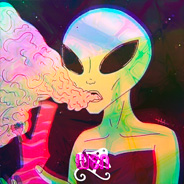Teacher: What, in your opinion, were the most important events of the 20th century?
Look at the table below.
1919 First nonstop transatlantic flight
1928 Discovery of penicillin, the first antibiotic
1930 - First World Cup soccer tournament
1961 - First manned space flight
1969 - First landing of humans on the moon
1984 - Researchers identify HIV, the virus that causes AIDS
1989 - The Berlin Wall comes down
1994 Apartheid ends in South Africa 1997 - Pathfinder spacecraft lands on Mars
Student A: The first manned space flight is the most important event.
Teacher: Why do you think so?
Student A: Because for centuries people dreamed about travel in space. And on April the twelfth 1961 that dream came true.
Teacher: Who was the first man in space?
Student B: He was a Russian. His name was Yuri Gagarin.
Student C: I think the discovery of penicillin is more important. It was the first antibiotic.
Teacher: Why are antibiotics important?
Student C: They destroy or stop the growth of harmful bacteria.
Student D: I believe aviation is the greatest achievement of the 20th century. Aviation made space flights possible.Student E: For me the First World Cup soccer tournament is very important because I love soccer.
Teacher: To play or to watch on television?
Student E: Both.
Student F: Politically, the Berlin Wall and the end of apartheid in South Africa are symbols of important democratic changes in the world.
Student D: The events in the last decade of the 20th century in Russia changed the situation in the world.
Teacher: That's true. Russia has become a more open and democratic society. So how has the life changed since the beginning of the 20th century? Do you have an idea what life was like at the beginning of the century?
Student B: Well, there weren't any television or video-recorders. There were very few cars on the roads. People travelled on foot, by bicycle, by bus or by train. Aeroplanes were very small and dangerous. Teacher: What has changed since then?
Student A: Well, cars have become cheaper and the number of cars has risen. Aeroplanes have become larger and faster.
Student A: And, probably, they have become safer, too.
Teacher: Well ... Certainly, they have.
Student D: But there has been quite a number of accidents over the last decades, including some serious plane crashes.
Student F: Anyway, people are not afraid of travelling by plane.
Teacher: So, transport has changed a lot since 1900. More people travel, and the journeys have become faster and easier. What about radio, television, computers, the Internet?
Student B: All of these have become part of our everyday life. We can watch television programmes from many countries. Almost all people have got computers and videos.
Teacher: Has life become better?
Student D: I think so. People are free to travel to most parts of the world. We now know more about how people live in other countries. The world has become a smaller place.
Teacher: Do you think things have become better in every way?
Student F: No, there's been over-population and more pollution because of all the cars and factories.
Student D: And the village has become noisier and more polluted.
Tom: Pollution is causing the greenhouse effect and damage to the ozone layer.
Teacher: Does everyone know what the greenhouse effect is?
Student B: I don't. What is it?
Student F: It's global warming. The earth is getting warmer.
Teacher: I'm glad you mentioned that, Tom.
2. Answer the questions.
Is the first manned space flight the most important event of the 20th century?
2. What did people dream for centuries about?
3. When did that dream come true?
4. Was Yuri Gagarin the first man who made his historic flight into space?
5. What made space flights possible?
6. Do you love soccer?
7. Did Russia change the situation in the world in the last decade of the twentieth century?
8. Was there television at the beginning of the twentieth century?
9. Were there many cars on the roads at that time?
10. How did people travel?
11. What were aeroplanes like?
12. Are people afraid of travelling by plane nowadays?
13. What has become part of our everyday life?
14. Can we watch television programmes from other countries today?
109
112
Ответы на вопрос:
Have your grandparents ever seen a volcano? have you ever been to australia? has bella ever see a tiger?
Реши свою проблему, спроси otvet5GPT
-
Быстро
Мгновенный ответ на твой вопрос -
Точно
Бот обладает знаниями во всех сферах -
Бесплатно
Задай вопрос и получи ответ бесплатно

Популярно: Английский язык
-
8.-Have you send the agreement? -Oh, I m sorry. I completely forgot. it...
 NeZnaiYProsto29.11.2022 06:10
NeZnaiYProsto29.11.2022 06:10 -
Замените предложения в активном залоге на предложения в пассивном залоге....
 DianaDeli2000512.05.2022 18:33
DianaDeli2000512.05.2022 18:33 -
9.-Why are you filling those buckets with water? - the car. (I / wash)....
 viktoriaedel23.08.2022 13:46
viktoriaedel23.08.2022 13:46 -
Put in preposituons where necessary() решить: all flights--hungary arrive--budapest...
 Jekils04.11.2021 15:49
Jekils04.11.2021 15:49 -
10 предложений про погоду паст симпол...
 bondarsofia25.10.2020 10:45
bondarsofia25.10.2020 10:45 -
Как нужно ответить? can i have your text book, please? 1. here is it. 2....
 ХранительТьмы22817.05.2023 17:50
ХранительТьмы22817.05.2023 17:50 -
Составить диалог на языке про дискриминацию...
 nikiraspru31.01.2023 14:15
nikiraspru31.01.2023 14:15 -
Расставить слова в предложениях 1)are there two in flat our bedrooms 2)living...
 Gubatu13.05.2020 03:02
Gubatu13.05.2020 03:02 -
Переведите на язык: как звали его маму и папу? какой он был в жизни? в...
 Kkoll32254687530.11.2021 05:53
Kkoll32254687530.11.2021 05:53 -
The underlined words and expressions (with the exception of one) are in...
 Vanya215529.10.2020 20:11
Vanya215529.10.2020 20:11

Есть вопросы?
-
Как otvet5GPT работает?
otvet5GPT использует большую языковую модель вместе с базой данных GPT для обеспечения высококачественных образовательных результатов. otvet5GPT действует как доступный академический ресурс вне класса. -
Сколько это стоит?
Проект находиться на стадии тестирования и все услуги бесплатны. -
Могу ли я использовать otvet5GPT в школе?
Конечно! Нейросеть может помочь вам делать конспекты лекций, придумывать идеи в классе и многое другое! -
В чем отличия от ChatGPT?
otvet5GPT черпает академические источники из собственной базы данных и предназначен специально для студентов. otvet5GPT также адаптируется к вашему стилю письма, предоставляя ряд образовательных инструментов, предназначенных для улучшения обучения.
